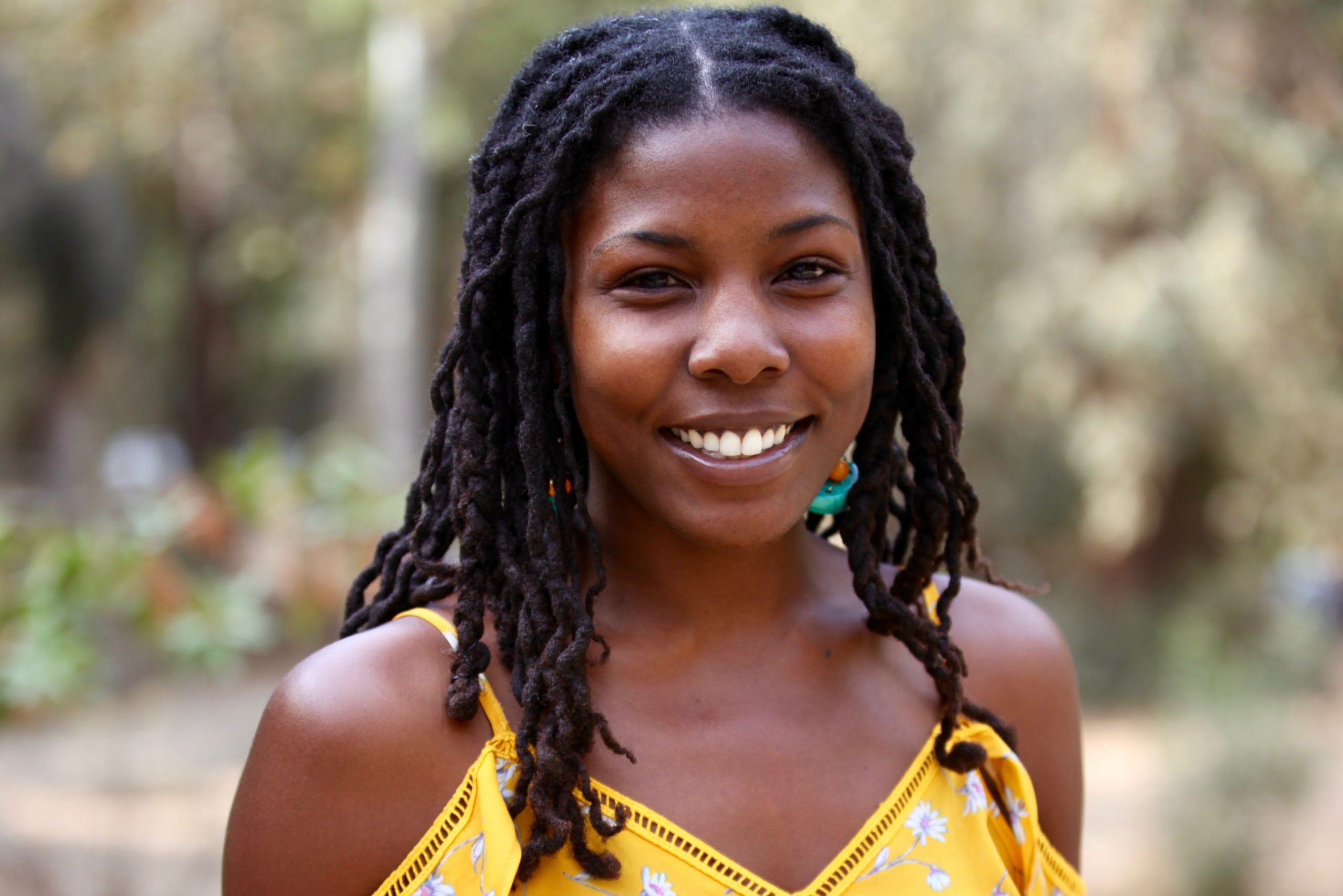Storytelling, Strategy + Black History: A Conversation with Carla Mechele Jones

For Carla Mechele Jones, it’s the little things in life — the sound of her locs hitting the yoga mat or taking a drive to find the perfect setting to clear her writer’s block — that leave a lasting impression. With over 15 years of journalism experience, an innate calling for visual art, and a keen eye for exploration, Mechele is Black girl magic personified.
Witnessing other Black women pave their own lanes and fulfill their dreams motivated her to take a leap of faith and leave her nine-to-five marketing job to launch Carla Mechele Media, LLC in 2015.
Mechele’s passion for storytelling was instilled in her as a child, and as she transitioned through the marketing field, she developed skills that enhanced her storytelling abilities through the addition of strategic marketing.
Her commitment to emphasizing the lost stories of Jacksonville’s Black history developed organically and is rooted in her historic family lineage and deep desire to spread knowledge. Her grandfather, Leroy Jones Jr., was awarded the Congressional Gold Medal of Honor in 2013 for his service as one of the nation’s first Black marines. Following in his footsteps, Mechele set records as the first woman TV anchor/reporter to wear locs on-air in Jacksonville.
We connected with her for a wide-ranging conversation in honor of Black History Month.
Jax Fray: What does Black history month mean to you?
Carla Mechele: Black history is the foundation of everything. Within my own family there was a lot of pride instilled in us because of where we came from. I had the privilege of knowing all four of my great-grandmothers. As a kid, I loved to sit at their feet and ask questions — [that’s] the journalist in me. I was always shocked to learn about the experiences they went through.
Why did you start your “Black History Spotlight” on Instagram, and why is it important to continue these conversations years later?
CM: I feature Black history stories because I value our elders. I hear a lot of people who aren’t from here say “Jacksonville doesn’t really have a culture” or “it lacks identity,” and that’s not true for me. When I stumbled across the Old Brewster Hospital building (the first and only Black hospital in Jacksonville), that was my first story. It was a [decision] based on the fact that I felt like this was information my parents shared with me, and I wanted to see if other people knew this. It was intriguing [and I] wanted people to experience the same feelings. I brought the idea to Instagram because people have short attention spans. Storytelling with strategy is a symbol of what I do with my company. If you can’t target your audience then the message is going to miss them even if it’s a great story.
According to History.com, this year’s Black History Month theme is “Black Health and Wellness.” How would you encourage people to celebrate Black History Month with that theme in mind?
I would encourage people to breathe. People think yoga is about the poses but it’s about breathing. We should take time to breathe because our breath is valuable; it’s the source of our life. If we stop breathing, we are no longer here. We should be intentional about [breathing] — and that’s in everything: physically breathing, taking a breath from our work and finding a balance. Give yourself permission to breathe because we do live in a society that rewards people who say, “there’s no time to sleep.” So, we have to set those boundaries in order to take care of ourselves.
How do you think the expansion of emerging black businesses throughout the area is redefining what it means to be Black in Jacksonville?
CM: I find in my research that a lot of things changed during desegregation that often led to a decline in the area. Durkeeville, for example, was called the Black Downtown because there was so much Black business; it was unified but then during desegregation the community got split up. I sometimes ride around in minority communities here and look at abandoned builds to research what they used to be. I’ve [also] had the privilege of working with Black Films Matter. They use art and film to draw people in but then they will have Black venders and host events on a strip filled with Black businesses. Black businesses are very critical. They are very important and multifaceted. Events and organizations like Black Films Matters make representing Black culture fun.
If you can name one influential person who is impacting Jacksonville’s Black community, who would it be and why?
CM: I’d have to say Betty Burney. She’s received her credit with her generation, but with the younger generation she’s not as well-known as I think she should be. She’s a former school board chair member, and she graduated from William M. Raines High School. After she left the school board, she started I’m A Star Foundation, which is a non-profit. They are a client of mine, but she is also a mentor of mine. She’s a client because she took a chance on my business; she was my first client. She hired me as an independent reporter to cover one of the kids’ events. Her work with kids is incredible, and she reinvests in the community. She is powerful. She is Black history to me.
You featured a story on your grandfather Leroy Jones Jr.’s plight in Black history, how does it make you feel to commemorate his historical achievement?
CM: It was emotional to tell his story because he passed away in 2019 and this was our second [Veteran’s Day Parade] without him. He was so quiet when I was growing up and never talked about his service. To honor him means a lot because I know how much that meant to him now, and had I not been here to see him get honored and witness the change, I probably wouldn’t have known how big of a deal that was. This isn’t just our family’s history. This is Black history. This is for other people to care about too.
Keep up with Mechele’s Black History Shorts on Instagram @carlamechele

